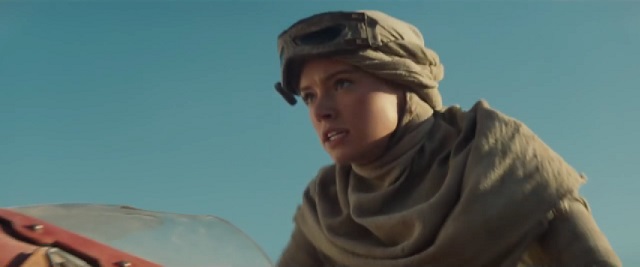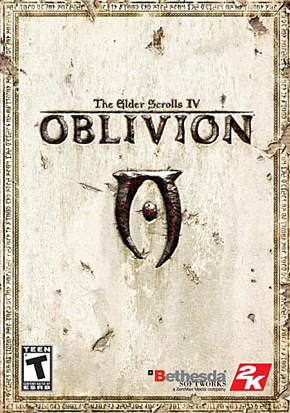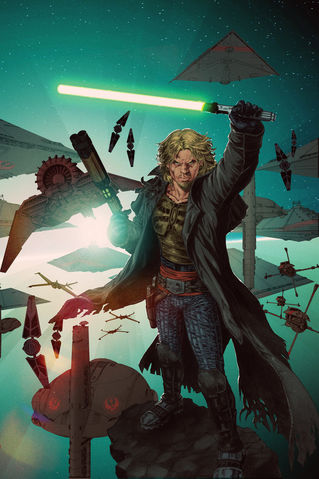
In 2006, Dark Horse Comics began Star Wars: Legacy. This series took the bold step of moving a century ahead of the then-current stories, considering the likely long-term consequences of the Yuuzhan Vong invasion. In this new world, the Sith had returned in a new form, revived by a fallen Jedi from the prequel era. Wait, should not said Jedi be dead? Ah, no, he was on Korriban in a time dilation bubble! Despite this, the creative team’s backstory for their book only went back a decade, leaving a gap of about eighty years.
What then followed was one of the biggest tragedies of fandom. Once Legacy’s future was posited, it became all that anyone could see even with that time gap! Added to this was a misplaced notion of generational guilt, that Luke, Han and Leia were rendered failures by the galaxy’s inability to follow their example long after they died. The idea that each generation has their own challenges, regardless of their predecessors, was buried in the outrage.
With the release in December of The Force Awakens, it is quite likely that the same attitude will recur, but on a far bigger scale. Should it? No. Why? Because be it eight decades or merely three, there is nothing that says events have to go merely from A to B. This is particularly so when the episodic nature of the SW films and the two trilogies is acknowledged. What is tragic about the outlook is it narrows down possibilities. It reduces stories to chronological pawns and damns the franchise to move forward in time at the cost of everything else. The Legends EU was practically killed, in large part, by this. Does anyone want to see that happen again, but bigger? I don’t.
The two trilogies are surprisingly self-contained. Oh, the PT certainly leaves no end of story strands for others to pick up, but then so did the OT. Nonetheless, by the end of each there is a definitive conclusion: The Empire is shattered, the future unknown; the Empire rules, Luke and Leia, Obi-Wan and Yoda, in hiding. The bridge from Revenge of the Sith to Return of the Jedi is only now actually being built in earnest. A large part of the restraint on Legends was the now-defunct SW TV series that was going to be set in-between the trilogies, but even that would have had to contend with ‘we know what’ll happen so why bother’ viewpoint.
 The Elder Scrolls games Oblivion and Skyrim are very impressive achievements in terms of creating a game world the gamer can end up immersed in. Indeed, the joke that works for both is you start off going from A to B, but end up at C, do further detours to G, E and D and then remember you had forgotten about ever getting to B. At the same time while each game offers fast travel between locations, it is frequently only by exploring that the greatest benefits are obtained. What does this have to do with SW? Simply that we should widen as opposed to narrowing our outlook.
The Elder Scrolls games Oblivion and Skyrim are very impressive achievements in terms of creating a game world the gamer can end up immersed in. Indeed, the joke that works for both is you start off going from A to B, but end up at C, do further detours to G, E and D and then remember you had forgotten about ever getting to B. At the same time while each game offers fast travel between locations, it is frequently only by exploring that the greatest benefits are obtained. What does this have to do with SW? Simply that we should widen as opposed to narrowing our outlook.
The other aspect that came up in the Legacy controversy was a tendency to be incredibly reductive about time. Suddenly the series was damned for being merely a century or so ahead of the books; one hundred years was deemed as nothing. Could the same thing plague the thirty-year gap between the OT and its new sequels? Quite, quite easily but it would be a shame if it did.
In the last few years, though people do not always realize it, Star Trek technology has become a reality. Watch any episode from Deep Space Nine, a series that was mid-90s and you’ll see these visual devices being used, they’re now iPads. Similarly mobile technology has matched and exceeds Trek’s communicators in terms of multi-tasking and multiple use. All of this has been in the last 10-15 years. There are people now who cannot envisage a world without the internet because it’s always been there as soon as they became aware of it.
And this is without even considering the politics. Go back thirty years to 1985 and the Cold War was raging, the states of Czechoslovakia and Yugoslavia still existed and Germany was divided into East and West. A few years later sees the Velvet Revolutions that were the first step in ending the Cold War, then there was Gulf War one, the Balkan and Rwandan catastrophes. Jump a little further forward and there’s the 09/11 attacks with war in Afghanistan and later Iraq following. Could we really reduce this down to a purely mechanistic and deterministic interpretation and still claim such an account to be accurate and not a distortion?
 If the last thirty years of the real world tells us anything it is that we have no idea what is going to happen. If we track events back from a certain point, all we end up with is a tiny sliver of the whole, but one that could dominate our perceptions if it is allowed to. Still, if this chronological perception is to go, what should replace it?
If the last thirty years of the real world tells us anything it is that we have no idea what is going to happen. If we track events back from a certain point, all we end up with is a tiny sliver of the whole, but one that could dominate our perceptions if it is allowed to. Still, if this chronological perception is to go, what should replace it?
First, I’d love to get SW operating on the Hitchhiker’s Guide concept of space – “space is big”. As soon as the galaxy got mapped into discrete regions, it began to fade as a galaxy. The sheer, astronomical scale of it was lost. It is akin to looking at a map of the US or Australia and forgetting the scale of the distances involved in traversing either country. One of the reasons I love the Malazan books by Erikson and Esselmont is I always have this sense of it all being a bit too big to grasp, it defies any such easy total comprehension. That needs to be in SW, along with due respect for what a galaxy actually is: millions of stars, billions of planets at a conservative estimate, scattered across truly staggering distances. How can this be reduced down to a handful of events across time in a handful of locations?
Second, why a singular line at all? One of Legends’ biggest faults in later years was the attitude that if story X took place in years 1-2 then nothing else could also happen at the same time. Why? Big war, big, big war. Really? So there’s no space for anything else? It’s an extrapolation from the real world; we have had global wars that no one could avoid being sucked into, so too for SW, but on a galactic level. Except, that extrapolation falls apart when you start looking at galactic distances and numbers. Even the New Jedi order’s mammoth death toll of planetary destruction and population extinctions is, in galactic terms, small.
In effect, instead of narrowing and reducing things down, to the point where there’s nothing left to do, let’s go the other way! Screw having a nice tidy continuity that’s so clean it’s sterile and lifeless, let it live and be akin to house that looks lived in rather than a show home.

I think this is a good start, but I think your argument is missing a critical element to the discussion.
The phrase ‘nature abhors a vacuum’ (disregarding Neil Degrasse Tyson’s opinion for the moment) comes to mind. For the vast majority of SW fandom, the stories of Luke, Leia, and Han are the one and only thread they find appealing. Therefore, it seems natural that after a jump of 30 years, the overwhelming question would be “what happened in the meantime?”
I would liken it to not seeing a dear friend for a couple of decades. Sure, in that span of time technology has rapidly advanced, geopolitical circumstances have changed, and the global economy has shifted. But I still really only care about the missing gap, which is what happened to my friend?
That being said, after attending several Celebration panels I think the concept of not necessarily addressing the gaps unless they fit within the context of the story is firmly in the minds of the Story Group. One paraphrased quote comes to mind, which was the Story Group’s plan is not one measured in ‘1 or 2 years, but in 10-15’. They also discussed how authors may come to them with an idea, and they’ll say ‘come back to us in 2 years’. So knowing that approach confirms in my mind their desire to have a slow and steady build-out to the almost infinite stories possible in the SW galaxy.
In addition, there was a quote from JJ Abrams that also addressed this issue as it relates to the films:
“…we’ve obviously had a lot of time [during the development process] to talk about what’s happened outside of the borders of the story that you’re seeing. So there are, of course, references to things, and some are very oblique so that hopefully the audience can infer what the characters are referring to,” he told Vanity Fair, in an interview that’s not yet online. “We used to have more references to things that we pulled out because they almost felt like they were trying too hard to allude to something. I think that the key is—and whether we’ve accomplished that or not is, of course, up to the audience—but the key is that references be essential so that you don’t reference a lot of things that feel like, oh, we’re laying pipe for, you know, an animated series or further movies. It should feel like things are being referenced for a reason.”
Lastly, with the rise of the Star Wars Anthology films, I think what we’ll get is instead of a rush to fill a vacuum, we will instead have a measured approach to filling in the gaps as desired, and where makes for an awesome story.
I think you wrote a great piece, but it looks like your mindset is one that is currently shared by those who hold the reins at Lucasfilm.
To be honest I don’t have much to say about the reboot anymore, it happened, it’s not getting reversed… that’s it? Yeah, pretty much. I bought Legends for 20 years so, yes, I dislike it but there’s little benefit to me in staying cheesed off about it. Instead of that trying to work out what might happen and why is a fun game.
As to references, it’s a very delicate balance: Get it right and people feel invited to seek out the stories, get it wrong and they feel they have to and can get irritated by that.
Finally, I’m curious: Once you get your key question(s) answered what then remains to retain your interest?